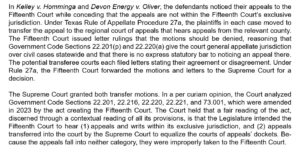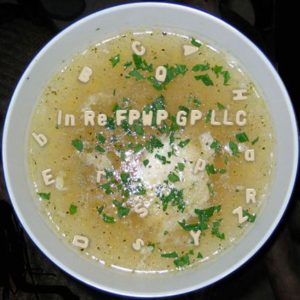It’s hard to improve on the supreme court’s own summary of how it resolved a jurisdictional dispute involving the new 15th Court of Appeals, so here it is. The consistent theme in these cases has been fidelity to the statutes’ plain meaning.
Category Archives: Venue
 To challenge a remand order by the new Business Court, the path to take is a mandamus petition rather than direct appeal, as recently confirmed by In re ETC Field Services LLC, from the 15th Court of Appeals on February 21:
To challenge a remand order by the new Business Court, the path to take is a mandamus petition rather than direct appeal, as recently confirmed by In re ETC Field Services LLC, from the 15th Court of Appeals on February 21:
ETC appealed the remand order to this Court. Tema moved to dismiss the appeal on the ground that it was not a final order and no statute authorized an interlocutory appeal.2 ETC defended the interlocutory appeal, but alternatively filed this original proceeding for mandamus relief if interlocutory appeal was unavailable. We hold today that no interlocutory appeal is available in these circumstances. … “But that of course does not preclude mandamus review.” “[T]he Legislature’s decision to forego interlocutory review of all pending cases in no way suggests it intended interlocutory review of none of them.” Accordingly, we turn to that issue in this opinion.
No. 15-24-00131-CV (15th Ct. App.) (citations and footnotes omitted).
 The defendants in a bus-accident cases disputed venue in Dallas County, arguing that the bus was ordered from, and ultimately delivered to, Parker County. The plaintiffs responded that “bookends are meaningless without the books,” contending that “determining where the bus was supplied also includes all actions that made negotiation and final delivery meaningful.” The Fifth Court ruled for the plaintiff,s concluding that the activities conducted in Dallas between order and delivery “were key components of an integral to [Defendant]’s transaction with [Plaintiff] for the sale of the bus. Rush Truck Centers of Tex. v. Sayre, No. 05-23-00775-CV (Nov. 30, 2023) (mem. op.). The Court continued: “[W]hile some of the Dallas actions involved clerical work, those actions are nonetheless relevant to determining whether the claim has substantial connection to the plaintiffs’ chosen venue.”
The defendants in a bus-accident cases disputed venue in Dallas County, arguing that the bus was ordered from, and ultimately delivered to, Parker County. The plaintiffs responded that “bookends are meaningless without the books,” contending that “determining where the bus was supplied also includes all actions that made negotiation and final delivery meaningful.” The Fifth Court ruled for the plaintiff,s concluding that the activities conducted in Dallas between order and delivery “were key components of an integral to [Defendant]’s transaction with [Plaintiff] for the sale of the bus. Rush Truck Centers of Tex. v. Sayre, No. 05-23-00775-CV (Nov. 30, 2023) (mem. op.). The Court continued: “[W]hile some of the Dallas actions involved clerical work, those actions are nonetheless relevant to determining whether the claim has substantial connection to the plaintiffs’ chosen venue.”
Dallas-Fort Worth International Airport, by any measure one of the world’s largest airports, sprawls into the boundaries of four cities and two counties. But that undisputed fact does not automatically establish venue over American Airlines in Dallas County, as shown by American Airlines v. Halkuff:
American offered evidence that the facts giving rise to appellees’ claims arose in Tarrant County because the terminal where the incident took place is—like all DFW terminals—located in Tarrant County. American’s undisputed evidence included specific identification of Terminal D and Gate D-38 as the location where the flight at issue boarded. According to American’s evidence, Terminal D and its associated runways are located entirely in Tarrant County. This evidence not only disproved appellees’ venue fact, it also amounted to evidence that Tarrant County was a proper venue.
No. 05-23-00621-CV (Oct. 18, 2023) (mem. op.).
Pizza Hut LLC v. Pandya resolves two issues about waiver of jury trial:
- Burden. “[T]he party objecting to the enforcement of a waiver in a facially valid contract bears the burden of showing the waiver’s unenforceability.”
- Fraud? “[A] fraud claim must be alleged against the jury waiver specifically.”
- Knowing? These, nonexclusive factors answer the question whether a pre dispute jury waiver is knowing or voluntary: “(1) whether both parties had an opportunity to negotiate the terms of the agreement, (2) whether the provision waiving jury trial was conspicuous, (3) the relative bargaining power of the parties, and (4) the business acumen or professional experience of the party opposing the waiver,” as well as “whether the party was represented by counsel.”
- Scope. When the parties had a series of agreements, language in one agreement’s waiver that appies to “any litigation by or among” the parties reaches claims made under those agreements.
No. 22-4055 (Aug. 22, 2023).
“Appellees substantially invoked the judicial process to appellants’ detriment when they chose the forum and filed suit in Collin County, Texas, in 2017, alleging numerous causes of action against appellants. Appellees did not raise forum non conveniens until 2020—after the parties had litigated back and forth, and after the trial court had partially granted appellants’ motion for summary judgment. Under these circumstances, allowing the plaintiff-appellees to use forum non conveniens—the point of which is to protect defendants from plaintiffs’ vexatious forum choices—to dismiss defendant-appellants’ counterclaims would be to turn the doctrine on its head.”
Munro v. Jagpal, 05-21-00125-CV (June 9, 2023) (mem. op.) (footnote omitted, emphasis added).
 A hard-fought forum dispute between two shoe businesses led to an unusual forum dispute in In re ASCIS Am. Corp.
A hard-fought forum dispute between two shoe businesses led to an unusual forum dispute in In re ASCIS Am. Corp.
Dueling lawsuits between ASCIS (the plaintiff in a California case) and Shoebacca (the plaintiff in a Dallas case) led to a decision by a Dallas district court to stay proceedings in deference to the California one.
ASCIS then served a subpoena on a Dallas-based attorney who had previously represented Shoebacca. Unsatisfied with the attorney’s responsiveness, ASCIS filed an ancillary proceeding in Dallas to enforce the subpoena. Shoebacca then intervened in that case, raising claims that ASCIS had already been stayed by a Dallas court in favor of their resolution in California.
The Fifth Court sided with ASCIS and granted mandamus relief to require the dismissal of the intervention. No. 05-22-00994-CV (Jan. 20, 2023) (mem. op.).
 Tex. Civ. Prac. & Rem. Code § 15.002(a)(3) authorizes venue “[i]n the county of the defendant’s principal office in this state, if the defendant is not a natural person.”
Tex. Civ. Prac. & Rem. Code § 15.002(a)(3) authorizes venue “[i]n the county of the defendant’s principal office in this state, if the defendant is not a natural person.”
Case law further says that a corporation may have more than one principal office in Texas, and that to qualify as a “principal office” location, the plaintiff must show that “the employees in the county where the lawsuit was filed (1) are ‘decision makers’ for the company, and (2) have ‘substantially equal responsibility and authority’ relative to other company officials within the state and case law.”
Logical enough, but still short on specifics. That’s why the Fifth Court’s recent opinion in Deere & Co. v. Bernal, building on an earlier Fifth Court case about this statute, is a helpful contribution. After a detailed review of the record about the responsibilities of a Dallas-based John Deere manager, the court held:
We see no meaningful distinction from the facts described in Roach that Deere’s system of routing certain parts to certain destinations preempts any higher level day-to-day decision making by the manager of the Dallas regional distribution center. Schick’s affidavit and deposition testimony, described above, identified numerous areas—other than the routing of particular parts—in which the manager of the regional distribution center is the authoritative figure in managing the regional facility and its layers and departments of employees. Schick did not identify a decision maker of higher authority in Texas who made day-to-day decisions in running the company, the employees, and the facility than the manager of the Dallas regional distribution center.
No. 05-22-00916-CV (Jan. 17, 2023) (mem. op.).
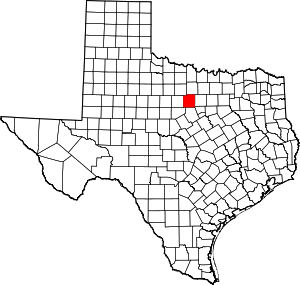 The venue issue in 7R Owners Assoc. v. Prezas was whether the defendant’s “principal office” was located in Dallas County. The following testimony did not support an argument that it was located there, as opposed to Palo Pinto County:
The venue issue in 7R Owners Assoc. v. Prezas was whether the defendant’s “principal office” was located in Dallas County. The following testimony did not support an argument that it was located there, as opposed to Palo Pinto County:
Mr. Ruff testified in May 2022 that he lives in Dallas. And since 2013, he has worked approximately one or two days a week out of 7R’s office in Palo Pinto County. He said that he works on 7R matters during “that same timeframe,” and he spends the rest of the week working on “other matters.” Appellees argue that, because Mr. Ruff lives in Dallas and is 7R’s sole officer and employee, “to the extent that 7R does conduct ‘daily affairs’” when Mr. Ruff is not in the Palo Pinto County office, those affairs are “necessarily performed in Dallas County by Mr. Ruff.”
No. 05-22-00776-CV (Nov, 30, 2022) (mem. op.).
 In TOS episode The Changeling, the Enterprise crew confronted a hostile space probe called “Nomad” (right). In Great Divide Ins. Co. v. Fortenberry, the Fifth Court confronted a nomadic case in which neither side established venue in Dallas County, when a provision of the Workers’ Compensation Act requires a case to proceed in the county where the employee resided at the time of injury.
In TOS episode The Changeling, the Enterprise crew confronted a hostile space probe called “Nomad” (right). In Great Divide Ins. Co. v. Fortenberry, the Fifth Court confronted a nomadic case in which neither side established venue in Dallas County, when a provision of the Workers’ Compensation Act requires a case to proceed in the county where the employee resided at the time of injury.
The plaintiff, a former Dallas Cowboy, averred that he lived in a Residence Inn in Dallas County at the time of his training-camp injury, but the Court found his affidavit did not establish the necessary facts that he had “some right of possession and not be a mere visitor” at the time. It also rejected arguments based on correspondence he received from the defendant insurance company’s office in Irving. But on the other hand, the insurance company failed to establish that it had a “principal office” in Travis County, just by showing that its agent for notice and filing was based there. Accordingly, the Court remanded for further development of the record about venue. No. 05-19-01541-CV (July 26, 2021) (mem. op.).
 The trial court dismissed the plaintiff’s case in Ashrat v. Choudhry as involving a dispute about rights to real property located in Pakistan. The Fifth Court disagreed, noting as to the claim:
The trial court dismissed the plaintiff’s case in Ashrat v. Choudhry as involving a dispute about rights to real property located in Pakistan. The Fifth Court disagreed, noting as to the claim:
Ashrat does not dispute that Choudhry has title to the property in Pakistan. And, by this suit, Ashrat does not seek to divest Choudhry of that title. Instead, Ashrat seeks return of the money he gave Choudhry to purchase the property and disgorgement of any monies received by Choudhry as a result of his misuse of Ashrat’s funds.
and as to forum non conveniens:
Texas courts clearly have an interest in resolving a dispute between its citizens regarding an alleged agreement made within the State and claims of misappropriation and breach of fiduciary duty based upon that alleged agreement.
No. 05-20-00515-CV (June 30, 2021) (mem. op.).
The parties’ dispute in Sazy v. J.R. Birdwell Constr. & Restoration, LLC went to trial and final judgment on the jury’s verdict. The sole issue on appeal was the denial of the defendant’s motion to transfer venue pretrial. While pretrial review of venue decisions is significantly limited by statute, those decisions are fair game for appeal post-trial. No. 05-19-01351-CV (April 1, 2021) (mem. op.).
 An unusual venue dispute led to a thorough review of the policies underlying the concept of “dominant jurisdiction” and the first-filed rule: “In resolving this dispute we must decide whether a plaintiff who initiates separate lawsuits in the same county against different defendants can claim dominant jurisdiction in one of those cases, after agreeing to transfer venue of that case to a different county and subsequently joining the defendant from the case still pending in the transferor county. Relators … assert that the transferred case lacks dominance over the interrelated case still pending in the original venue. We agree and conditionally grant the writ.” In re Equinor, No. 05-20-00578-CV (Oct. 7, 2020) (mem. op.).
An unusual venue dispute led to a thorough review of the policies underlying the concept of “dominant jurisdiction” and the first-filed rule: “In resolving this dispute we must decide whether a plaintiff who initiates separate lawsuits in the same county against different defendants can claim dominant jurisdiction in one of those cases, after agreeing to transfer venue of that case to a different county and subsequently joining the defendant from the case still pending in the transferor county. Relators … assert that the transferred case lacks dominance over the interrelated case still pending in the original venue. We agree and conditionally grant the writ.” In re Equinor, No. 05-20-00578-CV (Oct. 7, 2020) (mem. op.).
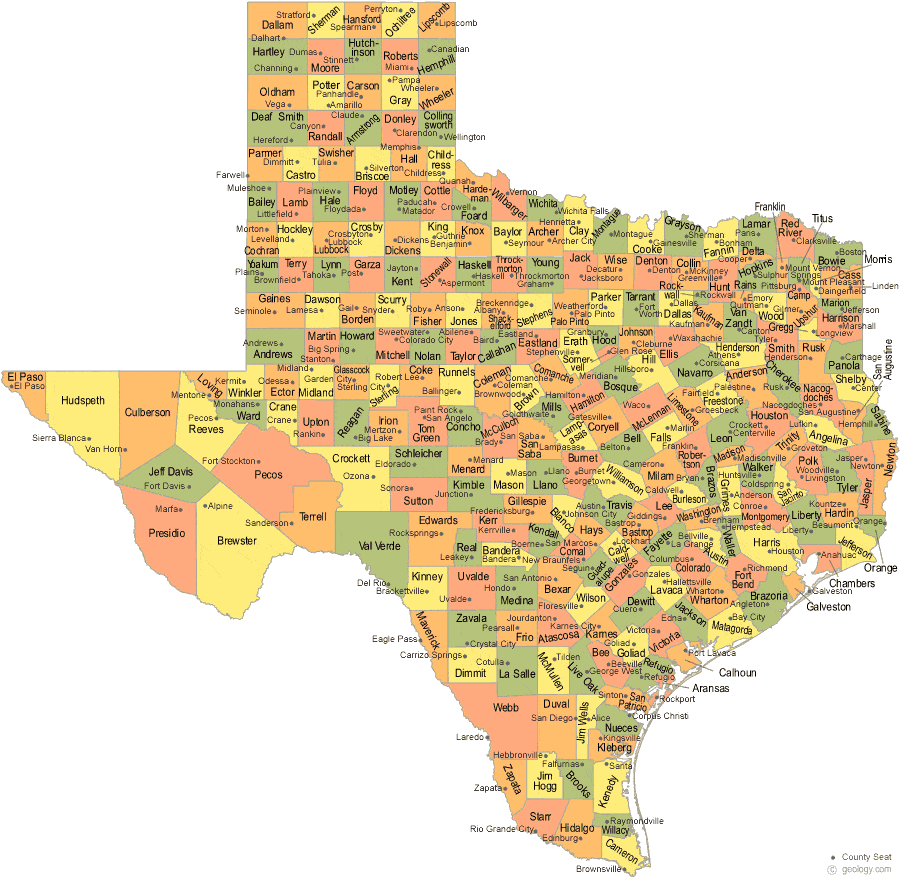 The principle is easy enough to state — because the mandatory-venue statute about injunctive relief “is limited to suits ‘in which the relief sought is purely or primarily injunctive[,] . . . it does not apply when the injunctive relief is ancillary to the other relief sought . . . where the injunctive relief is requested simply to maintain the status
The principle is easy enough to state — because the mandatory-venue statute about injunctive relief “is limited to suits ‘in which the relief sought is purely or primarily injunctive[,] . . . it does not apply when the injunctive relief is ancillary to the other relief sought . . . where the injunctive relief is requested simply to maintain the status
quo pending resolution of the lawsuit.” In re: Zidan shows that reasonable minds can differ about its application, however. The majority opinion saw the plaintiff’s request for injunctive relief as ancillary to the central dispute about the governance of a business entity; the dissent saw it as sufficiently central to implicated the statute. The Fifth Court’s judgment conditionally granted mandamus relief with respect to a Collin County judge’s decision to abate a first-filed case in favor of a Harris County matter. No. 05-20-00595-CV (July 15, 2020) (mem. op.)
 The trial court dismissed Heri Automotive’s counterclaims for forum non conveniens. Heri appealed. The Fifth Court dismissed because “no authority exists authorizing the appeal of the challenged interlocutory order,” and also noted that “appellant cites no authpority, and we have found none, that authorizes mandamus review of an interlocutory order granting a motion to dismiss for forum non conveniens.” Heri Automotive v. Adams, No. 05-19-01215-CV (Feb. 21, 2020) (mem. op.).
The trial court dismissed Heri Automotive’s counterclaims for forum non conveniens. Heri appealed. The Fifth Court dismissed because “no authority exists authorizing the appeal of the challenged interlocutory order,” and also noted that “appellant cites no authpority, and we have found none, that authorizes mandamus review of an interlocutory order granting a motion to dismiss for forum non conveniens.” Heri Automotive v. Adams, No. 05-19-01215-CV (Feb. 21, 2020) (mem. op.).
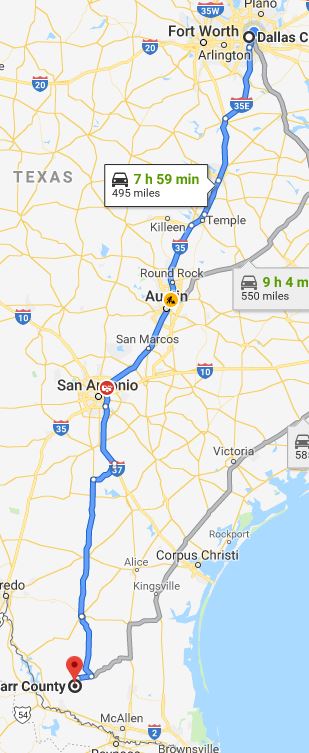 Valor Energy sued Price Drilling in Dallas County; Price sought transfer to Starr County, where the relevant oil well was located, and the Fifth Court denied Price’s mandamus petition, which was based on the mandatory-venue provision about the location of real estate (CPRC § 15.011). The Court reasoned: “The record shows that the contract was executed in Dallas County, the alleged negligence is based on Price’s performance of its drilling obligations, and the fraud claims relate in part to some actions directed at Valor in Dallas County. Valor does not seek damages for oil that has been wrongfully removed from its property, and does not seek any declarations as to Valor’s or Price’s rights to any portions of the property itself. Rather, Valor seeks breach of contract, fraud, and negligence damages for Price’s failure to fulfill its duties under the contract to re-drill the Well and for the misrepresentations made by Price to Valor regarding Price’s work on the alleged compliance with the terms of the contract.” In re Price Drilling Rig No. 5 Co., No. 05-19-00344-CV (June 17, 2019) (mem. op.)
Valor Energy sued Price Drilling in Dallas County; Price sought transfer to Starr County, where the relevant oil well was located, and the Fifth Court denied Price’s mandamus petition, which was based on the mandatory-venue provision about the location of real estate (CPRC § 15.011). The Court reasoned: “The record shows that the contract was executed in Dallas County, the alleged negligence is based on Price’s performance of its drilling obligations, and the fraud claims relate in part to some actions directed at Valor in Dallas County. Valor does not seek damages for oil that has been wrongfully removed from its property, and does not seek any declarations as to Valor’s or Price’s rights to any portions of the property itself. Rather, Valor seeks breach of contract, fraud, and negligence damages for Price’s failure to fulfill its duties under the contract to re-drill the Well and for the misrepresentations made by Price to Valor regarding Price’s work on the alleged compliance with the terms of the contract.” In re Price Drilling Rig No. 5 Co., No. 05-19-00344-CV (June 17, 2019) (mem. op.)
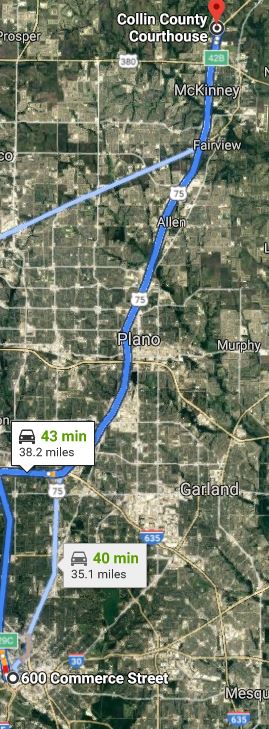 The 35-mile distance between the Collin and Dallas County courthouses (right) was dispositive in Condie v. McLaughlin, which presented this venue error:
The 35-mile distance between the Collin and Dallas County courthouses (right) was dispositive in Condie v. McLaughlin, which presented this venue error:
- McLaughlin sued Condie for breach of contract in Dallas, and won summary judgment in January 2016.
- Later that year, Condie’s P.C. sued McLaughlin for breach of (the same) contract in Collin County.
- McLaughlin sought transfer to Dallas, arguing that venue there was mandatory under CPRC § 15.062, because the PC’s claim was a “compulsory third-party claim that should have been brought” in the original Dallas suit.
- The trial court agreed and transferred (noting that it was not relying on the “convenience” provisions of CPRC § 15.002(b)).
The Fifth Court reversed – and with that reversal, vacated a favorable summary judgment that McLaughlin had gone on to win in Dallas – because “the record reflects no attempt, proper or otherwise, by Condie to join [the PC] in McLaughlin’s original suit against her” as required by § 15.062. No. 05-18-00085-CV (June 3, 2019) (mem. op.)
 A complicated tangle of arbitration, court, Texas and New Jersey produced a basic insight about forum-selection litigation: “Webb’s forum concerns highlight practical but all-too common and not-at-all error-establishing issues in modern litigation. He may have to travel further than he would like and may have to work harder to get witnesses properly to the New Jersey courts, but Webb has made insufficient showing on any part of the relevant analysis.” A footnote summarized case authority on this basic point, that all too often gets shunted to the end of a multi-factor analysis in a dispute about the proper forum. Webb v. Diversegy, LLC, No. 05-17-01258-CV (March 13, 2019) (mem. op.)
A complicated tangle of arbitration, court, Texas and New Jersey produced a basic insight about forum-selection litigation: “Webb’s forum concerns highlight practical but all-too common and not-at-all error-establishing issues in modern litigation. He may have to travel further than he would like and may have to work harder to get witnesses properly to the New Jersey courts, but Webb has made insufficient showing on any part of the relevant analysis.” A footnote summarized case authority on this basic point, that all too often gets shunted to the end of a multi-factor analysis in a dispute about the proper forum. Webb v. Diversegy, LLC, No. 05-17-01258-CV (March 13, 2019) (mem. op.)
 Amcad sued Freightquotes.com about a misplaced delivery. Freightquoutes moved to dismiss, pointing out that the relevant bill of lading incorporated “terms and conditions” on the company website, which in turn contained a Missouri foum-selection clause. Freightquotes lost in the trial cost and lost again before the Fifth Court. The panel majority (Justice Myers, joined by Justice Carlyle) “conclude[d that] the referring language is ambiguous as to who agreed to which Organization’s terms and conditions and does not unambiguously incorporate by reference Freightquote’s terms and conditions,” and thus denied mandamus relief. The dissent (Justice Whitehill) reasoned that “the parties plainly agreed to governing, written terms and conditions residing at a specific and readily accessible website” that plainly encompassed this dispute. No. 05-18-01028-CV (March 1, 2019) (mem. op.) (both opinions, applying Bob Montgomery Chevrolet Inc. v. Dent Zone Cos., 409 S.W.3d 181, 189 (Tex. App.—Dallas 2013, no pet.)).
Amcad sued Freightquotes.com about a misplaced delivery. Freightquoutes moved to dismiss, pointing out that the relevant bill of lading incorporated “terms and conditions” on the company website, which in turn contained a Missouri foum-selection clause. Freightquotes lost in the trial cost and lost again before the Fifth Court. The panel majority (Justice Myers, joined by Justice Carlyle) “conclude[d that] the referring language is ambiguous as to who agreed to which Organization’s terms and conditions and does not unambiguously incorporate by reference Freightquote’s terms and conditions,” and thus denied mandamus relief. The dissent (Justice Whitehill) reasoned that “the parties plainly agreed to governing, written terms and conditions residing at a specific and readily accessible website” that plainly encompassed this dispute. No. 05-18-01028-CV (March 1, 2019) (mem. op.) (both opinions, applying Bob Montgomery Chevrolet Inc. v. Dent Zone Cos., 409 S.W.3d 181, 189 (Tex. App.—Dallas 2013, no pet.)).
 In the wake of In re: Houston Specialty Ins. Co., No. 17-1060 (Tex. 2019), the Fifth Court released a revised opinion in In re Texas Christian Univ, concluding that TCU’s filing of a Tarrant County declaratory judgment action established “dominant jurisdiction” as to a damages case filed against it the next day in Dallas County. Applying the Houston Specialty framework, the Court found that the two lawsuits were “inherently interrelated,” a test substantially derived from the compulsory counterclaim rule. The Court found no exception to the applicability of the “first-filed” rule in this situation, noting that complaints about the propriety of the Tarrant County action were for that court, and “as the case currently stands, the Tarrant County court concluded TCU’s claims are not frivolous by denying [Dallas Plaintiff’s] rule 91a motion to dismiss.” No. 05-18-00967-CV (Feb. 6, 2019).
In the wake of In re: Houston Specialty Ins. Co., No. 17-1060 (Tex. 2019), the Fifth Court released a revised opinion in In re Texas Christian Univ, concluding that TCU’s filing of a Tarrant County declaratory judgment action established “dominant jurisdiction” as to a damages case filed against it the next day in Dallas County. Applying the Houston Specialty framework, the Court found that the two lawsuits were “inherently interrelated,” a test substantially derived from the compulsory counterclaim rule. The Court found no exception to the applicability of the “first-filed” rule in this situation, noting that complaints about the propriety of the Tarrant County action were for that court, and “as the case currently stands, the Tarrant County court concluded TCU’s claims are not frivolous by denying [Dallas Plaintiff’s] rule 91a motion to dismiss.” No. 05-18-00967-CV (Feb. 6, 2019).
 Rasul v. Rasul involved an unusually exotic forum non conveniens dispute, comparing the courts of McKinney, Texas to those in Afghanistan and Pakistan. The Fifth Court affirmed dismissal of the dispute. The threshold issue – whether the courts of those two countries are “available forums” – was resolved by a decidedly un-exotic point about the role of stipulations, of broad
Rasul v. Rasul involved an unusually exotic forum non conveniens dispute, comparing the courts of McKinney, Texas to those in Afghanistan and Pakistan. The Fifth Court affirmed dismissal of the dispute. The threshold issue – whether the courts of those two countries are “available forums” – was resolved by a decidedly un-exotic point about the role of stipulations, of broad  general interest outside of this context:
general interest outside of this context:
A defendant may demonstrate the availability of a forum by stipulating that it would submit to personal jurisdiction there. Appellees offered their consent to jurisdiction in writing in their motion to dismiss and in their reply brief in support of that motion; they repeated the offer at the hearing on the motion to dismiss. “A ‘stipulation’ is an agreement, admission, or concession made in a judicial proceeding by the parties or their attorneys respecting some matter incident thereto.” Appellees’ concession that they would submit to jurisdiction was made by their attorneys during the judicial proceeding surrounding the motion to dismiss. It was an effective stipulation, and therefore was sufficient to establish Afghanistan and Pakistan as available forums.
When styled as a “Rule 11 Agreement,” the case law about this kind of stipulation can be surprisingly confusing; this straightforward treatment of the point helps clarify those cases. No. 05-17-00612-CV (Dec. 17, 2018) (mem. op.)
 The Fifth Court reviewed one of “the seemingly endless variations of forum-selection clauses” in Target Strike Inc. v. Strasburger & Price LLP:
The Fifth Court reviewed one of “the seemingly endless variations of forum-selection clauses” in Target Strike Inc. v. Strasburger & Price LLP:
“This Contract shall be interpreted, construed, and governed by the laws of the State of Texas. The parties hereby submit to the jurisdiction of courts located in, and venue is hereby stipulated in, Bexar County, Texas.”
On the one hand, “[c]lauses in which parties merely ‘consent’ or ‘submit’ to jurisdiction of a particular forum, without further language indicating the parties’ intent to make jurisdiction exclusive, are permissive.” But on the other, while few cases involve “stipulations” as to venue, the general definition “indicate[s] that when a party stipulates to something,it is an express demand of a specified and essential condition of the contract.” As a result, this clause was mandatory. No. 05-18-00434-CV (Nov. 19, 2018) (mem. op.)
 In an opinion from last year in a dispute as to whether Dallas or Ellis County was the proper venue, the Fifth Court remanded for additional proceedings. The trial court then ordered transfer to Johnson County and declined to reconsider, citing a lack of jurisdiction after the transfer. The Fifth Court found that its mandate had not been followed, and that the expiration of the trial court’s plenary power before the filing of the petitioner’s mandamus petition “does not affect this Court’s authority to enforce its judgments.” Accordingly, it required the trial court to vacate its transfer order. In re F.A. Brown’s Construction LLC, No. 05-18-00804-CV (Sept. 18, 2018) (mem. op.)
In an opinion from last year in a dispute as to whether Dallas or Ellis County was the proper venue, the Fifth Court remanded for additional proceedings. The trial court then ordered transfer to Johnson County and declined to reconsider, citing a lack of jurisdiction after the transfer. The Fifth Court found that its mandate had not been followed, and that the expiration of the trial court’s plenary power before the filing of the petitioner’s mandamus petition “does not affect this Court’s authority to enforce its judgments.” Accordingly, it required the trial court to vacate its transfer order. In re F.A. Brown’s Construction LLC, No. 05-18-00804-CV (Sept. 18, 2018) (mem. op.)
 The Fifth Court conditionally granted mandamus relief as to the denial of a forum non conveniens motion in In re Ace American, a dispute about the denial of a workers’ compensation claim made by an Arizona resident against an Arizona employer. The claim was reviewed by a Dallas-based adjuster. The Court found that all relevant factors favored Arizona, noting in particular that:
The Fifth Court conditionally granted mandamus relief as to the denial of a forum non conveniens motion in In re Ace American, a dispute about the denial of a workers’ compensation claim made by an Arizona resident against an Arizona employer. The claim was reviewed by a Dallas-based adjuster. The Court found that all relevant factors favored Arizona, noting in particular that:
- No authority appeared to support the claim that “the importance of the power to compel witnesses to appear at trial is overemphasized . . . live testimony of physicians, for example, is rare . . . [and] use of video depositions of witnesses obviates the need for witnesses to attend trial,” and
- While part of the alleged tort may have occurred in Texas, the weight of authority did not foreclose that other parts of the alleged tort could have occurred elsewhere – in other words, that there was no singular “place of the alleged wrong” for purposes of the “local interest / localized controversies ” factor.
No. 05-17-01032-CV (June 15, 2018) (mem. op.)
 Archimedes famously said about the lever: “Give me a place to stand and I shall move the world!” Similarly, in review of a mandamus petition about enforcement of a foreign selection clause, the respondent only needs one place to stand: “The trial court denied the motion to dismiss and denied relators’ motion for reconsideration without stating on which grounds it denied the motions. In their petition for writ of mandamus, relators address only six of the seven grounds raised by the real party in interest below. When an appellant fails to attack one of the possible grounds on which a judgment was granted, the judgment must be affirmed.In re Baker, No. 05-17-01320-CV (Feb. 28, 2018) (mem. op.)
Archimedes famously said about the lever: “Give me a place to stand and I shall move the world!” Similarly, in review of a mandamus petition about enforcement of a foreign selection clause, the respondent only needs one place to stand: “The trial court denied the motion to dismiss and denied relators’ motion for reconsideration without stating on which grounds it denied the motions. In their petition for writ of mandamus, relators address only six of the seven grounds raised by the real party in interest below. When an appellant fails to attack one of the possible grounds on which a judgment was granted, the judgment must be affirmed.In re Baker, No. 05-17-01320-CV (Feb. 28, 2018) (mem. op.)
 In Grynberg v. Grynberg, the Fifth Court affirmed a forum non conveniens dismissal when the only meaningful connection between Texas and the dispute was the incorporation of the relevant business in Texas: “Although this case involves a single connection to Texas through the incorporation of Pricaspian, it is a controversy
In Grynberg v. Grynberg, the Fifth Court affirmed a forum non conveniens dismissal when the only meaningful connection between Texas and the dispute was the incorporation of the relevant business in Texas: “Although this case involves a single connection to Texas through the incorporation of Pricaspian, it is a controversy  involving an entity that maintains its offices in Colorado and individuals who, other than [one], reside in Colorado.” The Court also rejected an argument that the “internal affairs doctrine” created a jurisdictional impediment to a Colorado court proceeding with claims about the governance of the Texas business, finding that the doctrine was a choice-of-law concept rather than a jurisdictional limit. No. 05-16-00636-CV (Nov. 28, 2017) (mem. op.) (The “Pricaspian,” incidentally, is a large salt basin northwest of the Caspian Sea.)
involving an entity that maintains its offices in Colorado and individuals who, other than [one], reside in Colorado.” The Court also rejected an argument that the “internal affairs doctrine” created a jurisdictional impediment to a Colorado court proceeding with claims about the governance of the Texas business, finding that the doctrine was a choice-of-law concept rather than a jurisdictional limit. No. 05-16-00636-CV (Nov. 28, 2017) (mem. op.) (The “Pricaspian,” incidentally, is a large salt basin northwest of the Caspian Sea.)
 The forum selection clause in In re Atos IT Solutions said: “If the Dispute cannot be resolved by Customer and Supplier in accordance with Clause 32.1[the Mandatory ADR Process], the Parties irrevocably agree that the Courts of England shall have exclusive jurisdiction . . . .” “The use of the term ‘if’ connotes a condition precedent that conditions performance rather than a covenant or promise.” (quoting Shin-Con Dev. Corp. v. I.P. Invs., Ltd., 270 S.W.3d 759, 766–67 (Tex. App.—Dallas 2008, pet. denied)). The trial court received evidence about whether that condition had been satisfied here, concluded that it had not, and the Fifth Court thus found no abuse of discretion in the resulting ruling. No. 05-17-00952-CV (Aug. 18, 2017) (mem. op.).
The forum selection clause in In re Atos IT Solutions said: “If the Dispute cannot be resolved by Customer and Supplier in accordance with Clause 32.1[the Mandatory ADR Process], the Parties irrevocably agree that the Courts of England shall have exclusive jurisdiction . . . .” “The use of the term ‘if’ connotes a condition precedent that conditions performance rather than a covenant or promise.” (quoting Shin-Con Dev. Corp. v. I.P. Invs., Ltd., 270 S.W.3d 759, 766–67 (Tex. App.—Dallas 2008, pet. denied)). The trial court received evidence about whether that condition had been satisfied here, concluded that it had not, and the Fifth Court thus found no abuse of discretion in the resulting ruling. No. 05-17-00952-CV (Aug. 18, 2017) (mem. op.).
 The Fifth Court found this forum selection clause mandatory and unambiguous: “Any lawsuit relating to any matter arising under this agreement shall be initiated in a State or Federal Court located in San Jose, California.” An attempt to avoid the contract provision by relying upon tort claims failed under Pinto Technology Ventures v. Sheldon (Tex. May 19, 2017): “Dynasty’s claims arise from the business relationship that was struck through the agreements and will require review and interpretation of the agreements by the trial court or trier of fact for Dynasty to prevail. On this record, a but for relationship is evidence between the claims asserted below and the Business Agreement.” In re Bambu Franchising, No. 05-17-00690-CV (Sept. 12, 2017) (mem. op.)
The Fifth Court found this forum selection clause mandatory and unambiguous: “Any lawsuit relating to any matter arising under this agreement shall be initiated in a State or Federal Court located in San Jose, California.” An attempt to avoid the contract provision by relying upon tort claims failed under Pinto Technology Ventures v. Sheldon (Tex. May 19, 2017): “Dynasty’s claims arise from the business relationship that was struck through the agreements and will require review and interpretation of the agreements by the trial court or trier of fact for Dynasty to prevail. On this record, a but for relationship is evidence between the claims asserted below and the Business Agreement.” In re Bambu Franchising, No. 05-17-00690-CV (Sept. 12, 2017) (mem. op.)
 Omnicare and Remarkable had four contracts, all with a forum selection clause which said that Delaware state and federal courts had jurisdiction “to the exclusion of any and all other possible venues.” Remarkable sued Omnicare in four separate Texas counties (one suit per contract); the parties agreed to consolidate them in Dallas, and signed a Rule 11 agreement to do so which said that Omnicare agreed to “waive any objections they may have to venue over the claims against them being in Dallas County.” Omnicare then moved to dismiss, based on the contractual forum selection clause. The Fifth Court conditionally granted mandamus relief in favor of Omnicare, finding that the Rule 11 agreement addressed “venue” – the locale within the Texas system – as opposed to “forum” – the locale outside that system. In re Omnicare Pharmacy, No. 05-17-00246-CV (Aug. 31, 2017).
Omnicare and Remarkable had four contracts, all with a forum selection clause which said that Delaware state and federal courts had jurisdiction “to the exclusion of any and all other possible venues.” Remarkable sued Omnicare in four separate Texas counties (one suit per contract); the parties agreed to consolidate them in Dallas, and signed a Rule 11 agreement to do so which said that Omnicare agreed to “waive any objections they may have to venue over the claims against them being in Dallas County.” Omnicare then moved to dismiss, based on the contractual forum selection clause. The Fifth Court conditionally granted mandamus relief in favor of Omnicare, finding that the Rule 11 agreement addressed “venue” – the locale within the Texas system – as opposed to “forum” – the locale outside that system. In re Omnicare Pharmacy, No. 05-17-00246-CV (Aug. 31, 2017).
 Congrats to my LPCH law partner Liz Ryan for a solid win in a forum dispute.
Congrats to my LPCH law partner Liz Ryan for a solid win in a forum dispute.
Krueger brought tort claims against his former employer, Pulse Evolution Corp. The first sentence of the dispute resolution clause in his employment agreement said that “[a]ny dispute under this Agreement shall be arbitrated” in Palm Beach County, Florida. The forum selection clause, found much later in the long paragraph, said, “In the event that arbitration
cannot be compelled or in order to enforce arbitration,” exclusive jurisdiction lies in Port St.Lucie County, Florida. Krueger argued that the “under this Agreement” clause impliedly carried into the forum selection provision, but the Fifth Court disagreed:
“The modifying language ‘under this Agreement’ is found only in the arbitration clause, which is the first sentence of paragraph 25. The forum selection clause, found in lines 27–30 of paragraph 25, states that it applies to disputes in which arbitration cannot be compelled. Additionally, each clause selects a different county in Florida as the forum for dispute resolution. To give meaning to both the arbitration clause and the forum selection clause, the forum selection clause must refer to disputes that are not subject to the arbitration clause, that is, disputes that do not arise ‘under this Agreement.’ If the parties wanted this modifying language to apply to the forum selection clause, they could have said so.”
Krueger v. Pulse Evolution Corp., No. 05-16-00922-CV (July 21, 2017).
 In a construction dispute about work performed in Johnson County, Plainitff Brown said venue was proper in Dallas County because Defendant Ken-Do had a principal office there. Ken-Do argued that venue was proper in Ellis County.
In a construction dispute about work performed in Johnson County, Plainitff Brown said venue was proper in Dallas County because Defendant Ken-Do had a principal office there. Ken-Do argued that venue was proper in Ellis County.
- The Fifth Court rejected Brown’s argument, finding that his only probative evidence related to Ken-Do’s post office box in Dallas, which “at most, . . . showed someone on behalf of Ken-Do retrieved its mail in Dallas County, not that a decision maker did so.”
- But the Court also rejected Ken-Do’s position, which relied on its registered office in Ellis County: “A registered office is nothing more thatn the location an entity has designated where it can be served with legal process. It does not show the principal decisionmakers of the entity conducted its daily affairs from that loca
 tion.”
tion.”
Accordingly, the Court reversed the final judgment below, and remanded “to conduct further proceedings on the issue of venue.” Ken-Do Contracting, LP v. F.A. Brown’s Construction, LLC, No. 05-16-00373-CV (Aug. 7, 2017) (mem. op.)
The high-profile mandamus case of In re: Paxton provides a general reminder about geographic bounds on Texas trial courts: “Jurisdiction over the cases vested immediately in the Harris County district courts when respondent signed the transfer order. The Texas Constitution does not allow the 416th Judicial District Court to sit outside of the Collin County seat, McKinney, absent express statutory authority. Tex. Const. art. V, § 7. The only authority by which this may occur is [Code of Criminal Procedure] article 31.09, which requires consent of the parties. Thus, absent effective application of article 31.09, respondent may not continue to preside over the cases or utilize the services of the court reporter, court coordinator, or clerk of the court of original venue. Relator has unequivocally stated that he did not consent to respondent continuing to preside over the cases or otherwise acting in accordance with article 31.09, and no written consent appears in our record. Accordingly, under the plain language of the statute, respondent is without authority to continue to preside over the cases and is also without authority to issue orders or directives maintaining the case files in Collin County. Consequently, all orders issued by respondent after he signed the April 11, 2017 transfer order are void.” No. 05-17-00507-CV (May 30, 2017).
Federal law, but highly relevant to the local corporate community – the Supreme Court’s unanimous May 22 decision in TC Heartland LLC v. Kraft Foods Group Brands LLC holds: “As applied to domestic corporations, ‘reside[nce]’ in [28 U.S.C.] § 1400(b) refers only to the State of incorporation.”
In In re FPWP GP LLC, et al. (January 25, 2017), the Dallas Court of Appeals conditionally granted a writ of mandamus for the district court’s failure to transfer venue under the mandatory venue provision of Section 65.023 of the Civil Practice & Remedies Code, which provides that “a writ of injunction against a party who is a resident of this state shall be tried in … the county in which the party is domiciled.” Courts have struggled at times to apply Section 65.023 because it does not apply to all suits seeking an injunction, but instead only to suits in which the relief requested is “purely or primarily injunctive.” So, if the primary form of relief is something else, e.g. damages, then the mandatory venue provision does not apply. The opinion gave examples of the exception, such as when injunctive relief is simply to maintain the status quo pending litigation or when there is no request for a permanent injunction. But in the case at hand, the plaintiff sought only a declaratory judgment that was effectively a mirror image of the permanent injunctive relief requested. Holding the injunction “was a means to the same end” as the declaratory judgment, the Court held that the primary purpose of the lawsuit was injunctive and that transfer to the county of domicile of the defendants was mandatory under Section 65.023.
 In the mandamus case of In re Fort Apache Energy Inc., the relators sought relief from a trial setting in Dallas County, alleging that it interfered with the dominant jurisdiction (and slightly later trial setting) of the Kendall County Court. No. 05-15-00159-CV (Dec. 16, 2015). The Dallas Court of Appeals denied the petition, finding that the setting did not “amount[] to the kind of direct interference . . . that warrants mandamus relief under currently governing law.” (citing, inter alia, Abor v. Black, 695 S.W.2d 564, 566 (Tex. 1985) (orig. proceeding). In a classic disagreement about the scope and role of mandamus proceedings, a dissent would grant relief, arguing that “refusal to correct the trial court’s clear abuse of discretion by mandamus presents a strong likelihood of wasted public and private resources alike.” The Texas Supreme Court has since accepted a mandamus petition in, and set oral argument for, a similar case, also from Dallas.
In the mandamus case of In re Fort Apache Energy Inc., the relators sought relief from a trial setting in Dallas County, alleging that it interfered with the dominant jurisdiction (and slightly later trial setting) of the Kendall County Court. No. 05-15-00159-CV (Dec. 16, 2015). The Dallas Court of Appeals denied the petition, finding that the setting did not “amount[] to the kind of direct interference . . . that warrants mandamus relief under currently governing law.” (citing, inter alia, Abor v. Black, 695 S.W.2d 564, 566 (Tex. 1985) (orig. proceeding). In a classic disagreement about the scope and role of mandamus proceedings, a dissent would grant relief, arguing that “refusal to correct the trial court’s clear abuse of discretion by mandamus presents a strong likelihood of wasted public and private resources alike.” The Texas Supreme Court has since accepted a mandamus petition in, and set oral argument for, a similar case, also from Dallas.
